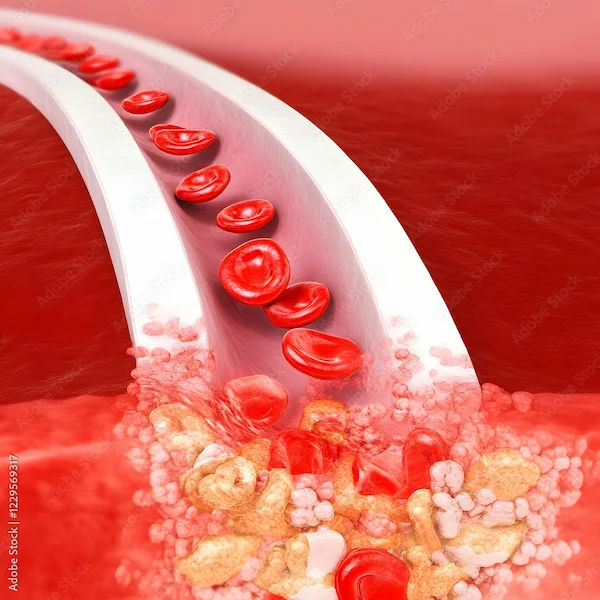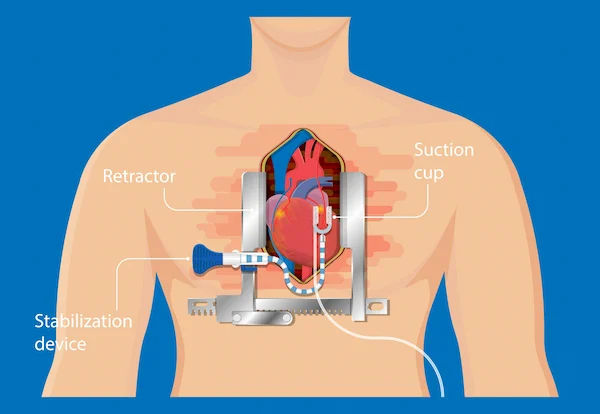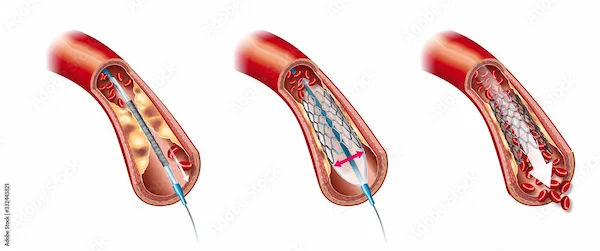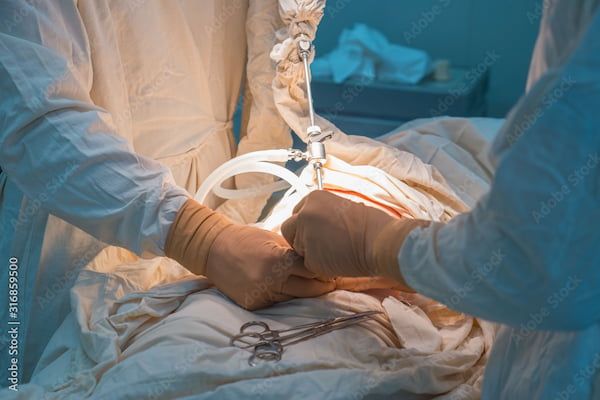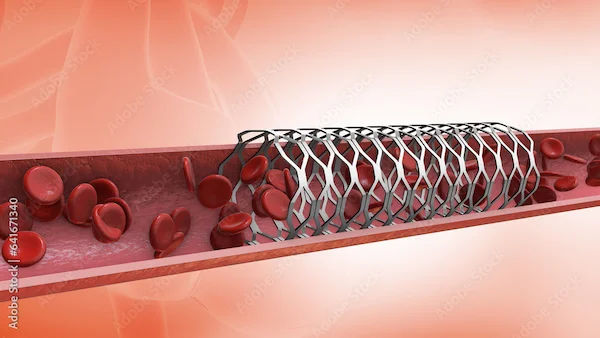Pre-Heart Attack Symptoms In Men
Discover the early warning signs of a heart attack in men, including subtle symptoms, risk factors, and when to seek medical attention to prevent serious cardiac events.

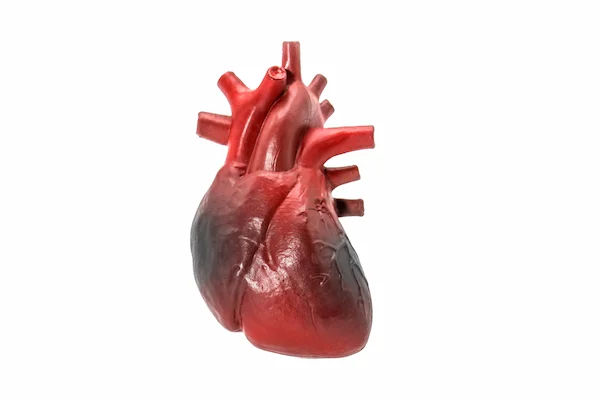
Introduction
A heart attack is a serious medical emergency that requires immediate attention. While heart attacks can happen suddenly, many men experience warning signs days or even weeks before the actual event. Recognising these pre-heart attack symptoms can save lives by allowing early medical intervention.
In this article, we’ll discuss the common pre-heart attack symptoms in men, their causes, and what you can do to reduce your risk.
What Are Pre-Heart Attack Symptoms?
Pre-heart attack symptoms, also called prodromal symptoms, are early warning signs that your heart is not getting enough blood flow. These symptoms may appear gradually and worsen over time before a full-blown heart attack occurs.
Men often experience these symptoms differently than women, so it’s important to be aware of them.
Common Pre-Heart Attack Symptoms in Men
Here are some of the pre-heart attack symptoms in men:
1. Chest Discomfort (Angina)
A feeling of pressure, tightness, or squeezing in the chest.
May come and go, lasting a few minutes at a time.
Often mistaken for indigestion or heartburn.
2. Shortness of Breath
Difficulty breathing even with mild activity.
May occur without chest pain.
3. Fatigue
Unusual tiredness, even after rest.
Feeling exhausted after simple tasks like walking or climbing stairs.
4. Pain in Other Areas
Discomfort in the arms (especially left arm), jaw, neck, back, or stomach.
May feel like an ache or heaviness.
Consult Top Specialists for Personalised Tips
5. Cold Sweats & Dizziness
Sudden sweating without physical exertion.
Feeling lightheaded or faint.
6. Nausea or Indigestion
Unexplained stomach pain, nausea, or vomiting.
Often mistaken for food poisoning or acid reflux.
7. Irregular Heartbeat
Palpitations or a feeling that your heart is skipping beats.
If you experience any of these symptoms, do not ignore them—seek medical help immediately.
Why Do These Symptoms Occur?
Pre-heart attack symptoms happen when coronary arteries (blood vessels supplying the heart) become narrowed or blocked due to:
Plaque buildup (atherosclerosis): Cholesterol deposits clog the arteries.
Blood clots: A clot can suddenly block blood flow.
Spasms in coronary arteries: Sudden tightening reduces blood supply.
When the heart muscle doesn’t get enough oxygen-rich blood, it sends warning signals in the form of these symptoms.
Who Is at Higher Risk?
Men are more likely to have heart attacks at a younger age than women. Risk factors include:
Age (45+ for men)
Smoking
High blood pressure
High cholesterol
Diabetes
Obesity
Family history of heart disease
Sedentary lifestyle
Excessive stress
If you have multiple risk factors, you should be extra cautious about early symptoms.
What Should You Do If You Notice These Symptoms?
Here’s what you should do if you notice any of the symptoms of pre heart attack:
1. Don’t Ignore Them: Many men dismiss early signs, thinking they’ll go away.
2. Seek Immediate Help: Call emergency services or go to the nearest hospital.
3. Chew Aspirin (if advised by a doctor): It can help prevent further clotting.
4. Stay Calm & Rest: Avoid physical exertion until help arrives.
Remember: Early treatment can prevent severe heart damage.
How to Reduce Your Risk of a Heart Attack?
Let’s have a look at some of the tips to reduce your risk of heart attack:
1. Eat a Heart-Healthy Diet
More: Fruits, vegetables, whole grains, fish, nuts.
Less: Fried foods, processed meats, sugary drinks, excess salt.
2. Exercise Regularly
Aim for 30 minutes of moderate exercise (walking, swimming, cycling) most days.
3. Quit Smoking & Limit Alcohol
Smoking damages blood vessels; quitting reduces heart attack risk significantly.
Limit alcohol to 1-2 drinks per day.
4. Manage Stress
Practice deep breathing, meditation, or yoga.
Get enough sleep (7-8 hours per night).
5. Control Medical Conditions
Keep blood pressure, cholesterol, and diabetes under control with medications if needed.
6. Regular Health Check-ups
Get annual check-ups, especially if you have risk factors.
When to See a Doctor?
If you experience any unusual symptoms like chest discomfort, unexplained fatigue, or shortness of breath, consult a doctor immediately.
At Apollo 24|7, you can:
Book a consultation with a cardiologist.
Schedule heart health tests (ECG, stress test, cholesterol check).
Get personalised advice on preventing heart disease.
Early detection and lifestyle changes can make a huge difference!
Conclusion
Heart attacks don’t always strike without warning. Many men experience pre-heart attack symptoms that, if recognised early, can prevent a life-threatening event. Listen to your body, take preventive steps, and seek medical help when needed.
Consult Top Cardiologists
Consult Top Specialists for Personalised Tips

Dr. Amit. A. Bharadiya
Cardiologist
12 Years • MBBS, MD General Medicine, DNB Cardiology, FSCAI
Maharashtra
Surabhi Hospital, Maharashtra, Maharashtra

Dr. Pinaki Nath
Cardiologist
8 Years • MBBS, MD General Medicine, DM Cardiology
Barasat
Diab-Eat-Ease, Barasat
Dr. Dixit Garg
Cardiologist
10 Years • MBBS , DNB (General medicine) , DNB (cardiology)
Gurugram
Smiles & Hearts, Gurugram

Dr. Mangesh Danej
Cardiologist
8 Years • MBBS, MD (General Medicine), DNB (Cardiology)
Pune
Dr Danej clinic, Pune
(375+ Patients)
Dr. Sibashankar Kar
Cardiologist
10 Years • MBBS, DNB
Bhubaneswar
Hi-Tech Medical College & Hospital, Bhubaneswar
Consult Top Cardiologists

Dr. Amit. A. Bharadiya
Cardiologist
12 Years • MBBS, MD General Medicine, DNB Cardiology, FSCAI
Maharashtra
Surabhi Hospital, Maharashtra, Maharashtra

Dr. Pinaki Nath
Cardiologist
8 Years • MBBS, MD General Medicine, DM Cardiology
Barasat
Diab-Eat-Ease, Barasat
Dr. Dixit Garg
Cardiologist
10 Years • MBBS , DNB (General medicine) , DNB (cardiology)
Gurugram
Smiles & Hearts, Gurugram

Dr. Mangesh Danej
Cardiologist
8 Years • MBBS, MD (General Medicine), DNB (Cardiology)
Pune
Dr Danej clinic, Pune
(375+ Patients)
Dr. Sibashankar Kar
Cardiologist
10 Years • MBBS, DNB
Bhubaneswar
Hi-Tech Medical College & Hospital, Bhubaneswar
